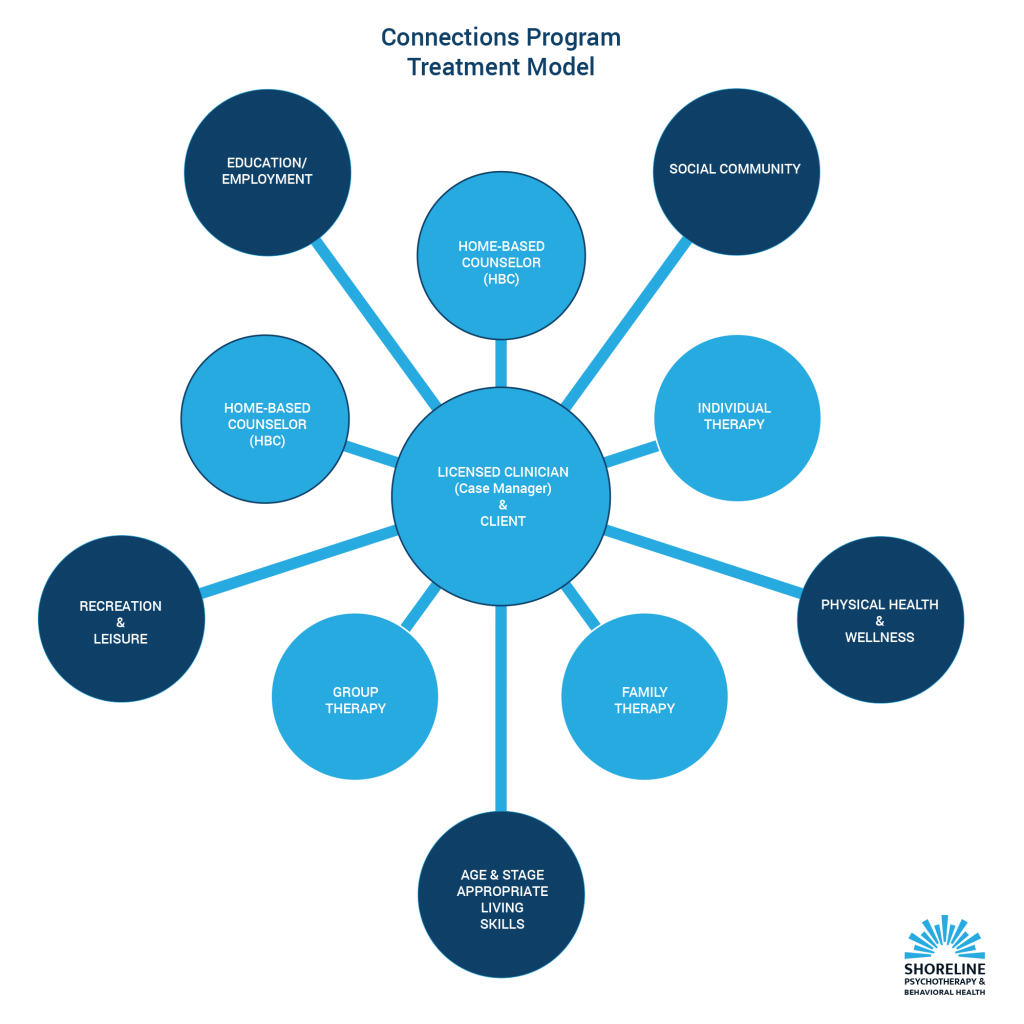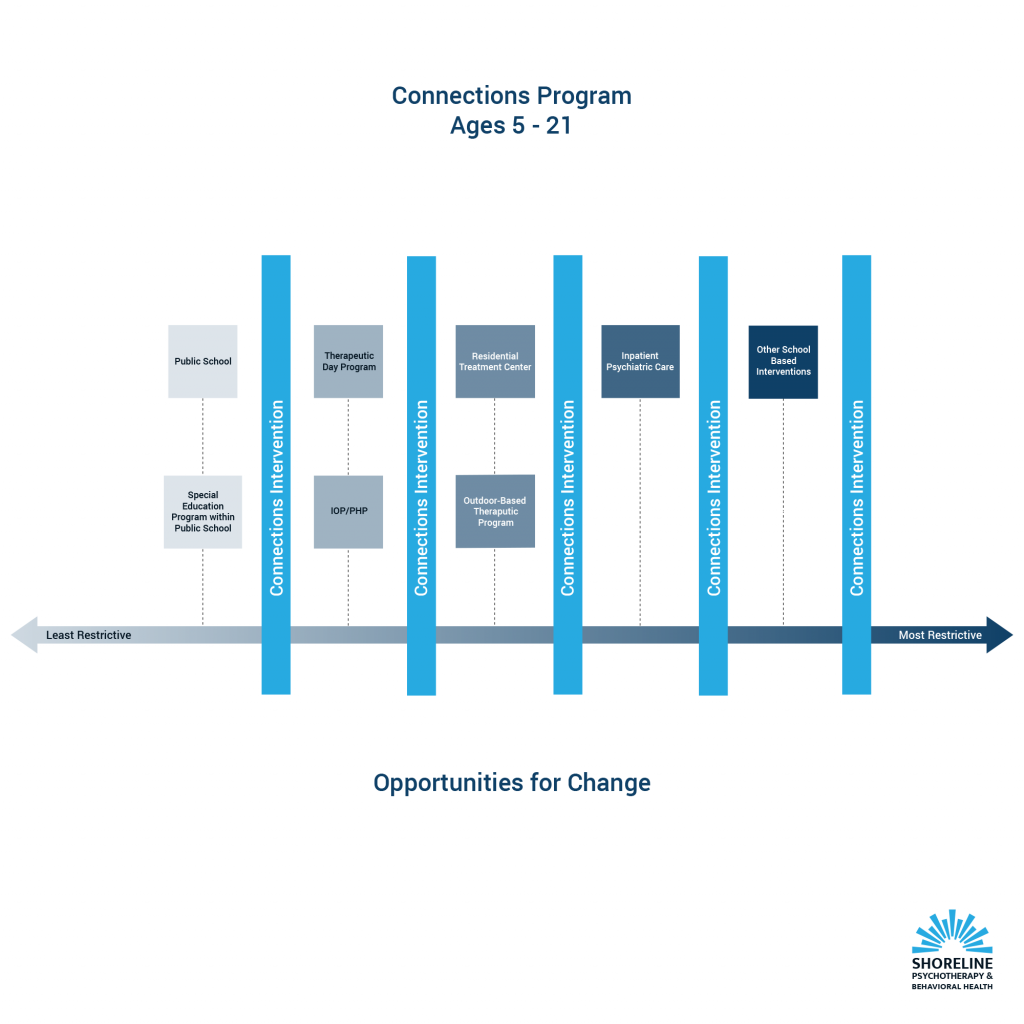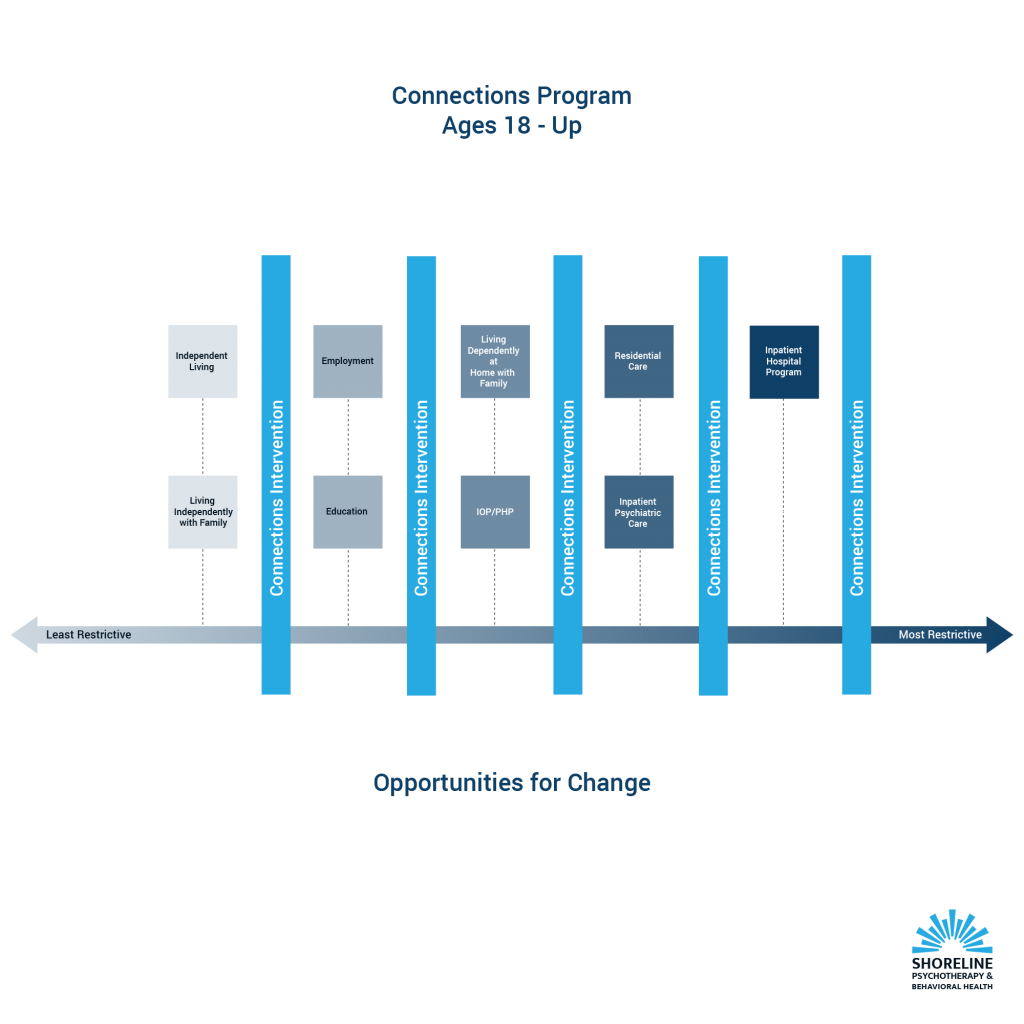COURAGE. CONNECTION. CHANGE.
“Nothing is impossible, the word itself says ‘I’m possible’!”
– Audrey Hepburn
Connections for Transitions is a partnership program for children, adolescents, adults, families, and providers that addresses client needs across the continuum of psychotherapy and behavioral health interventions. This program functions to support the shift from one level of care to another. Some clients may be prepared to decrease services based on the reduction of acute symptoms, whereas others may need to increase services as their needs become more complex. Connections for Transitions aims to bridge the gap between levels of care and to help the client and their family recalibrate and stabilize their functioning during these transitions.

Admissions Criteria
Population Served: all ages and stages
- Stepping down: clients recently discharged from partial/inpatient hospitalizations, wilderness programs, residential treatment centers, therapeutic boarding schools.
- Mood regulation: bipolar, manic/hypomanic, major depressive episodes; escalated symptoms, decompensation, compromised functionality.
- Increasing support: changing schools, programs, providers; moving homes, locations; life transitions.
- Emerging/recurring psychiatric concerns: examining symptoms, formulating diagnosis, adjusting/evolving diagnosis; preventative care.
- Family disturbances: traumatic events—divorce, death, exposure to hardship.


Scenarios:
- Examples of services in action:
- Discharge from Wilderness Programs/Residential Treatment Centers: reintegrating to the home/school environment from a more restrictive and structured setting; helping create new structure and carry out ongoing treatment recommendations and goals.
- Discharge from Intensive Outpatient Programs/Partial Hospitalization Programs: step-down from hospital setting, providing wrap-around services designed to move the client toward stabilization.
- Inpatient Psychiatric Treatment: supporting the transition out of short or long-term hospitalizations, determining the structure necessary to support the client’s re-stabilization in their previous environments.
- Currently working with a therapist, psychiatrist, or attending therapeutic programs/day schools: increased need for support outside of structured therapeutic schedule; escalating symptoms, decreased stabilization, having requirement for ongoing intervention.
- College—beginning or ending enrollment: adjusting to independence, creating routine for daily functioning, balancing responsibilities; transitioning back to home environment, creating a new direction and plan for the future.
- Traumatic events: supporting stages of bereavement and grief around loss or other significantly impactful experiences; processing trauma, increasing coping skills, and providing ongoing support.
Services caveats, limits and boundaries:
- SPBH does not provide transportation to school or community appointments.
- SPBH does not provide medical intervention: dispensing prescription medication, treating wounds or injuries, ambulation or hospitalization.
- Connections for Transitions is an individualized program tailored to specific client needs. The timeline for enrollment will be determined based on the client’s circumstances and progress toward meeting goals established within the program. SPBH will collaborate with the client, their family, and community providers to assess appropriate timing for transition to another mode of treatment.
Goals and Outcomes
At the end of enrollment in Connections for Transitions, clients will achieve emotional and functional independence including the ability to regulate emotions and behaviors, relate to and cooperate with others, and manage the responsibilities necessary to take care of themselves and lead a life that is healthy and fulfilling. These newly developed abilities will allow the client to create and sustain new points of contact as they move forward. In doing so, the client will independently access support networks as they navigate life with others and address their personal needs.
Specializing in Family Centered Therapy, Community Partnerships, and a Systems Approach in Connecticut
Call Us: 1.203.453.2999